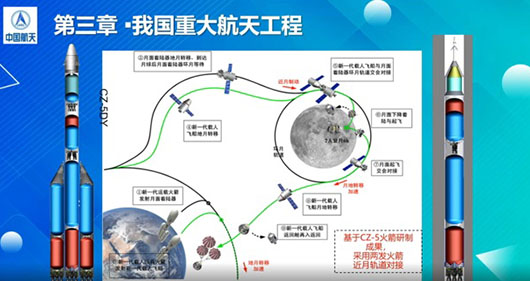FPI / November 25, 2021
Geostrategy-Direct
By Richard Fisher
Over the last week the “new race” to the Moon got closer, with the United States announcing delays and China hinting at an acceleration.

Absent leadership and commitment by the Biden Administration, it is beginning to look like China could actually “beat” the United States back to the Moon.
American Astronauts, of course, won the first race to put people on the Moon in 1969 amid the failure of the Soviet Union to build a reliable heavy space launch vehicle for its Cosmonauts to reach the Moon, and they never did.
In the competition between Democracy and Communism, the U.S. victory was perhaps more useful than winning a war, as the Soviet failure reflected its systemic flaws, and the U.S. success was immediately embraced a positive victory for all mankind.
The new race between the United States and China, however, is much less about symbolism or propaganda, as it is for keeps — that is, whoever gets to the Moon first and builds the largest presence may achieve more leverage over the freedom and behavior of the other, on the Moon and beyond.
In 2017 former President Donald Trump announced the U.S. would be returning to the Moon, and in March 2019 former Vice President Mike Pence set a goal for the United States to return astronauts to the Moon by 2024. It was named the “Artemis Program.”
This set an example of American leadership, reversing President Barack Obama’s April 2010 decision to cancel President George W. Bush’s 2004 initiative to return the U.S. to the Moon called the “Constellation Program.”
The early plan was to have the third Artemis mission of the heavy rocket NASA Space Launch System (SLS), a much-modified survivor of the Constellation Program, to return Astronauts to the Moon in late 2024.
But on Nov. 9, current U.S. National Aeronautics and Space Administration (NASA) administrator Sen. Bill Nelson told reporters that “The Trump administration’s target of 2024 human landing was not grounded in technical feasibility.”
He added that this mission may not be feasible until early 2025 in part due to a seven-month delay caused by Jeff Bezos lawsuit challenging NASA’s sole award of the Human Landing System (HLS) spacecraft to Elon Musk’s SpaceX Corporation.
Full Text . . . . Current Edition . . . . Subscription Information
Free Press International
